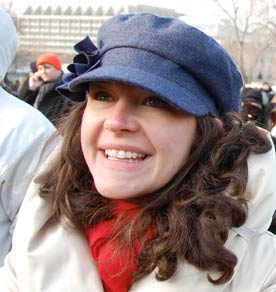
Rather than shying away from the complex debates and questions facing our field, we see activists, policy makers, advocates, scholars, and citizens pushing toward innovative strategies that allow us to experience the revolutionary power that motivated many of us to engage in our work initially. In many cases, these challenges and opportunities are actually increasing the possibilities for creative responses.
Questions I faced as an emerging practitioner 16 years ago still remain, largely caused by addressing problems too parochially, focused on particular communities, rather than within a framework that considers both the broader global and historical contexts. What should we ask and seek to learn? What do activists, policy makers, advocates, scholars, and citizens of other countries do to surmount the challenges that face us here? What knowledge and wisdom can we import? What can we export? What global alliances can we build that mutually sustain the most challenged of individuals in the least and most challenged of contexts?
Those questions ought not to overwhelm us. In fact, answering them is not much different than an organizer meeting with residents to talk through neighborhood-based issues, analyzing who has power and developing strategies so that issues are “winnable.” This sort of analysis is not new to our field, but many of us have been doing it in silos disconnected from potential national and global allies; parochialism must yield to globalism. If we don’t take that perspective, we decrease our chance to successfully address chronic challenges at home. In this “flat world” where events in one context affect events in distant ones, globalism and leveraging of international knowledge is a necessity, not a luxury.
To adopt this perspective will require us to redefine how we think about “community.” It will require us to engage in analysis that may be uncomfortable, since our gaze may have become too focused on the immediate concerns and neighborhood-based context, due in part to the political-economic structures that cause more reactionary responses while also demanding more professional expertise. This local-global perspective will, however, ultimately advance systemic changes.
We still have the power. We just need to critically reflect on our histories and look farther than our own backyards to claim what is ours.




Comments